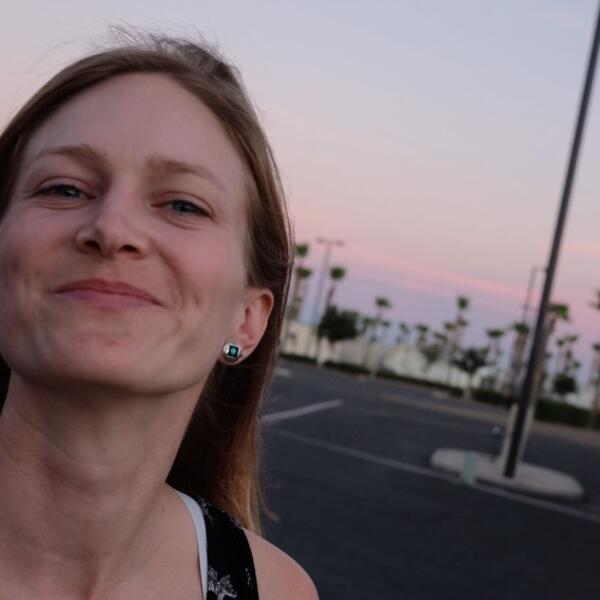TOADSTOOLS GROW
out of the lichen
on the trees.
I pull off their tops,
chew and spit
without swallowing.
My breath
is humid,
subsoil,
hideaway.
I smash the petals
of the poppies,
paint my face
with their juice.
I lick butterfly
wing dust,
open the carapaces
of the beetles.
The strength of the weak
possesses me.
LOS HONGOS
crecen sobre el moho
de los árboles.
Arranco sus cabezas,
mastico y escupo
sin tragar.
Tengo aliento
a humedad,
a subsuelo,
a escondite.
Aplasto los pétalos
de las amapolas,
me pinto la cara
con su jugo.
Lamo el polvillo
de las mariposas,
abro el caparazón
de los escarabajos.
La fuerza de lo débil
me posee.
THE ANTIDOTE TO VENOM
is a stronger venom.
Sitting by my side,
Mama inspects the two marks
in my swelling arm.
She rubs my infected skin
with a gold ring.
They did the same to her
when she was your age,
Grandmother says.
If I were the ring, Mama,
and you, a girl,
I’d roll all over your body
to turn you
into a saint or a martyr.
EL ANTÍDOTO DEL VENENO
es un veneno más fuerte.
Sentada a mi lado,
mamá revisa las dos marcas
que hinchan mi brazo.
Frota mi piel infecta
con un anillo de oro.
A ella le hacían lo mismo
cuando tenía tu edad,
dice la abuela.
Si yo fuera el anillo, mamá,
y tú, una niña,
lo haría rodar
por todo tu cuerpo
para convertirte
en santa o mártir.
WITH HER RED HAIR
to the wind
in the fury
of spring,
Mama walks with the shotgun
through the hills.
I walk behind,
five steps
back.
Sometimes she dances,
at once she focuses
and shoots.
I’m the prisoner
and the shot
sets me free,
she says.
CON LA CABELLERA ROJA
al viento
en la furia
de la primavera,
mamá anda con la escopeta
entre los cerros.
Voy detrás,
a cinco pasos
de distancia.
A veces baila,
de pronto se concentra
y dispara.
Yo soy la presa
y el disparo
me libera,
dice.
THE FOALS
don’t think
about my mother.
They jump erotically
on the wet grass,
cross the forest
with her on their backs
and forget her
when she loses her way
in the thicket.
They sleep standing up
waiting for her.
A light springs
from their tear ducts,
strange and faint
like the dreams
of humans.
NO PIENSAN
en mi madre
los potrillos.
Brincan erotizados
sobre el pasto mojado,
atraviesan el bosque
con ella a cuestas
y la desconocen
cuando se pierde
en la espesura.
Duermen parados
mientras la esperan.
Una luz les brota
del lagrimal,
extraña y mínima
como los sueños
de los humanos.
I AM THE LAST LODGING
of the curse
that passed through
the women
in my family.
The pearl among this broken nacre.
SOY EL ÚLTIMO HOSPEDAJE
de la maldición
que atravesó
a las mujeres
de mi familia.
La perla entre este nácar roto.

Natalia Litvinova is an Argentine poet, translator, and co-editor of the press Editorial Llantén. She was born in Gomel, Belarus, and has lived in Buenos Aires since her family’s immigration in 1996. Her books have been translated into multiple languages and published in Argentina and elsewhere. She teaches writing classes. (@NatLitvinova)

Kelsi Vanada’s translations include Sergio Espinosa’s Into Muteness (Veliz Books) and Berta García Faet’s The Eligible Age (Song Bridge Press), and she is the author of the poetry chapbook Rare Earth (Finishing Line Press). Kelsi is the Program Manager of the American Literary Translators Association in Tucson, Arizona. (@KelsiVanada)